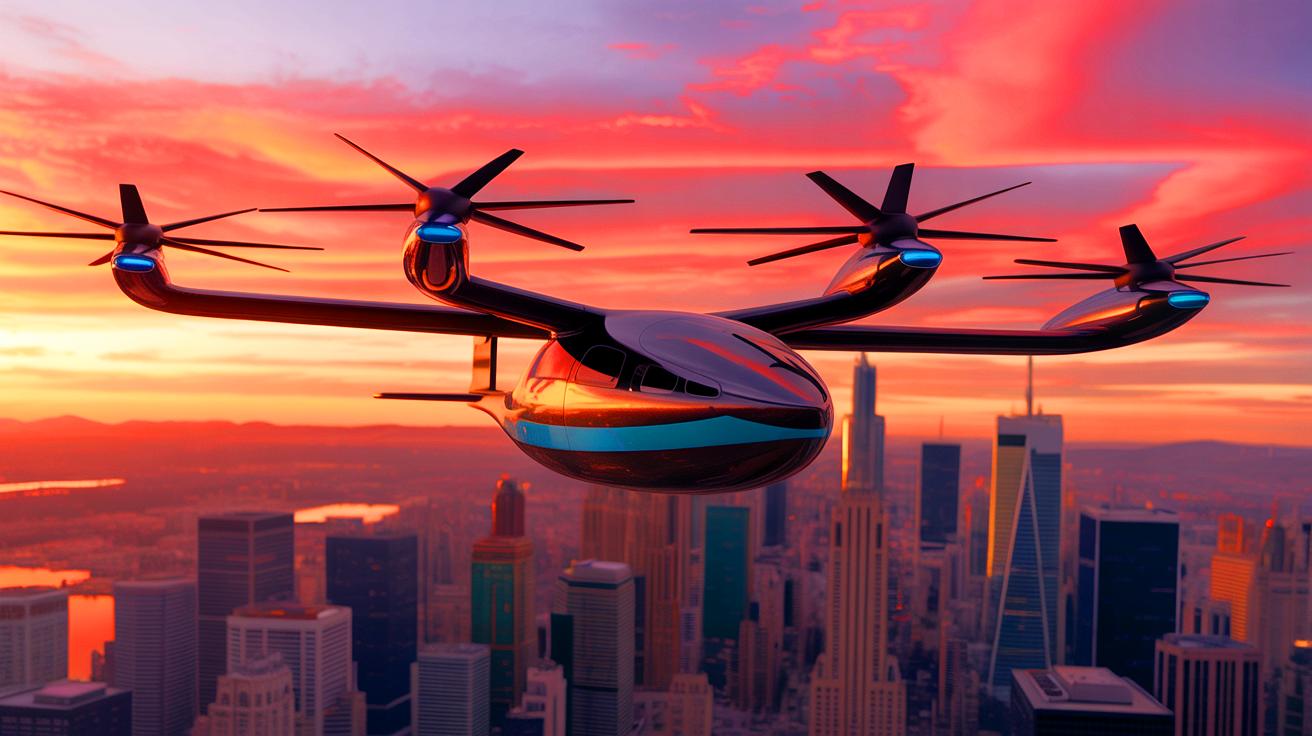Airbus Unveils Revolutionary Hydrogen-Powered Aircraft Concept at Summit 2025
Key Ideas
- Airbus introduces a groundbreaking hydrogen aircraft concept with four 2 MW propeller engines and liquid hydrogen tanks, showcasing a major leap in sustainable aviation.
- Key technical milestones have been achieved, including successful tests of hydrogen propulsion systems and the development of essential infrastructure like the LH2BB test bench.
- The article highlights the importance of building a hydrogen ecosystem involving infrastructure and regulatory frameworks for the widespread adoption of hydrogen aviation.
- While presenting exciting opportunities for cleaner air travel, the transition to hydrogen aviation also poses challenges such as infrastructure development and regulatory adaptations.
In a groundbreaking move at the Airbus Summit 2025, the European aerospace giant unveiled a revolutionary hydrogen-powered aircraft concept. This innovative design integrates four powerful engines with liquid hydrogen tanks, marking a significant step in the aviation industry’s journey toward decarbonization. With the ambitious ZEROe project, Airbus aims to introduce a fully electric aircraft that utilizes hydrogen fuel cells, thus redefining the future of air travel. The company’s commitment to sustainable aviation is underscored by the potential of hydrogen-powered, all-electric planes to transform air transportation, complementing the existing sustainable aviation fuel sector. This article delves into the technological advancements, challenges, and future prospects surrounding this visionary concept.
An Innovative Four-Engine Concept
Airbus’s new hydrogen aircraft concept features a cutting-edge propulsion system powered by four 2 megawatt (MW) propeller engines. Each engine is fueled by a hydrogen fuel cell system, supported by two liquid hydrogen tanks. This sophisticated setup is the result of five years of intensive research and evaluation of various architectures. Glenn Llewellyn, the head of the ZEROe project, expressed confidence in the concept’s potential to deliver the power density necessary for a commercial aircraft. However, large-scale testing is essential to advance the development of propulsion, storage, and hydrogen distribution systems. This bold initiative represents a significant leap in aviation technology, promising to pave the way for cleaner, more sustainable air travel.
Significant Technical Milestones Achieved
Airbus has already crossed several crucial milestones in its hydrogen aircraft journey. In 2023, the company successfully tested a 1.2 MW hydrogen propulsion system, marking a major achievement in the project. The following year, in 2024, Airbus conducted tests that combined fuel cells, electric motors, gearboxes, and heat exchangers. These advancements underscore Airbus’s commitment to mastering hydrogen technology for aviation. In collaboration with Air Liquide, Airbus developed the LH2BB (Liquid Hydrogen BreadBoard) test bench in Grenoble to manage liquid hydrogen in flight. Moreover, integrated tests are scheduled for 2027 at the “Electric Aircraft System Test House” in Munich, highlighting the company’s forward-thinking approach to advancing hydrogen-powered aviation.
Building a Hydrogen Ecosystem
While the technological advancements are impressive, Airbus emphasizes the critical importance of developing the necessary infrastructure and regulatory framework to support hydrogen aviation. The success of hydrogen-powered aircraft will depend not only on technological innovation but also on the emergence of a robust hydrogen economy tailored to the aviation industry. Airbus is aware that without appropriate infrastructure and regulations, the transition to hydrogen aviation may face significant hurdles. Thus, the company is advocating for a collaborative effort between industry stakeholders, governments, and regulatory bodies to create an ecosystem conducive to the growth of hydrogen-powered air travel. This holistic approach is essential for the widespread adoption and success of this sustainable aviation solution.
Future Prospects and Challenges
The introduction of hydrogen-powered aircraft presents both exciting opportunities and formidable challenges. The potential to reduce aviation’s carbon footprint is substantial, offering a cleaner alternative to traditional jet fuels. However, the transition to hydrogen aviation involves overcoming technical, logistical, and economic barriers. Infrastructure development, including hydrogen production and storage facilities at airports, is crucial for the widespread implementation of this technology. Additionally, regulatory frameworks must evolve to accommodate the unique requirements of hydrogen-powered aircraft. The success of this endeavor will ultimately hinge on collaboration between industry leaders, policymakers, and technology developers. As Airbus forges ahead with its visionary concept, the aviation world watches closely, anticipating a new era of sustainable air travel. As Airbus continues to push the boundaries of aviation technology with its hydrogen-powered aircraft concept, the industry stands on the brink of a transformative era. The path to decarbonized air travel is fraught with challenges, but the potential rewards are immense. Will Airbus’s bold vision inspire other aerospace companies to invest in hydrogen technology, leading to a more sustainable future for the aviation industry?
